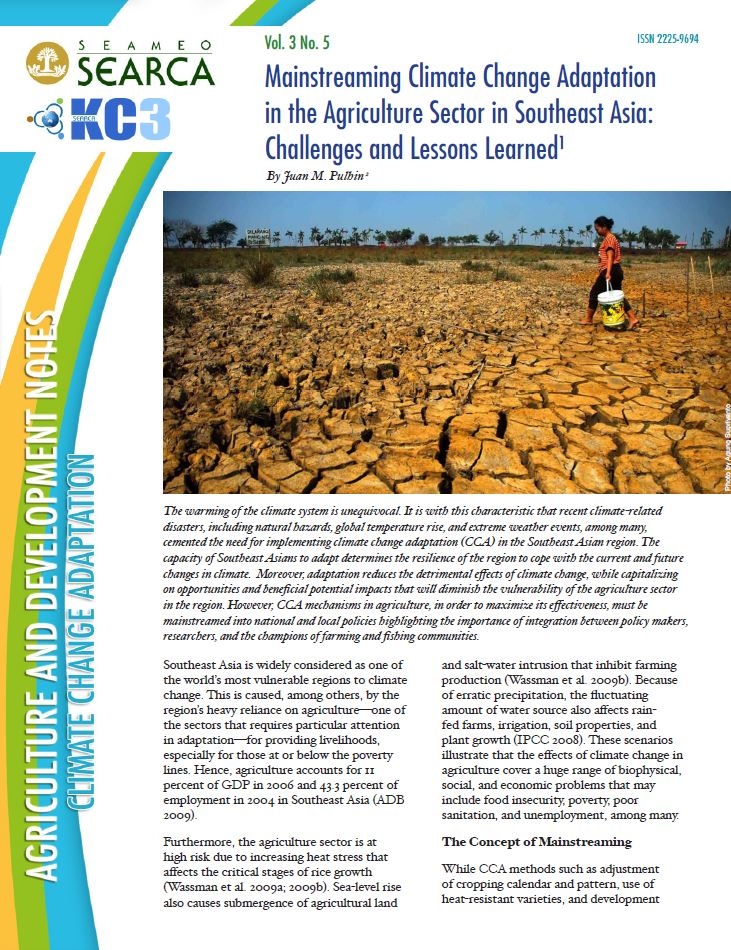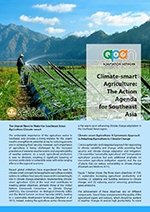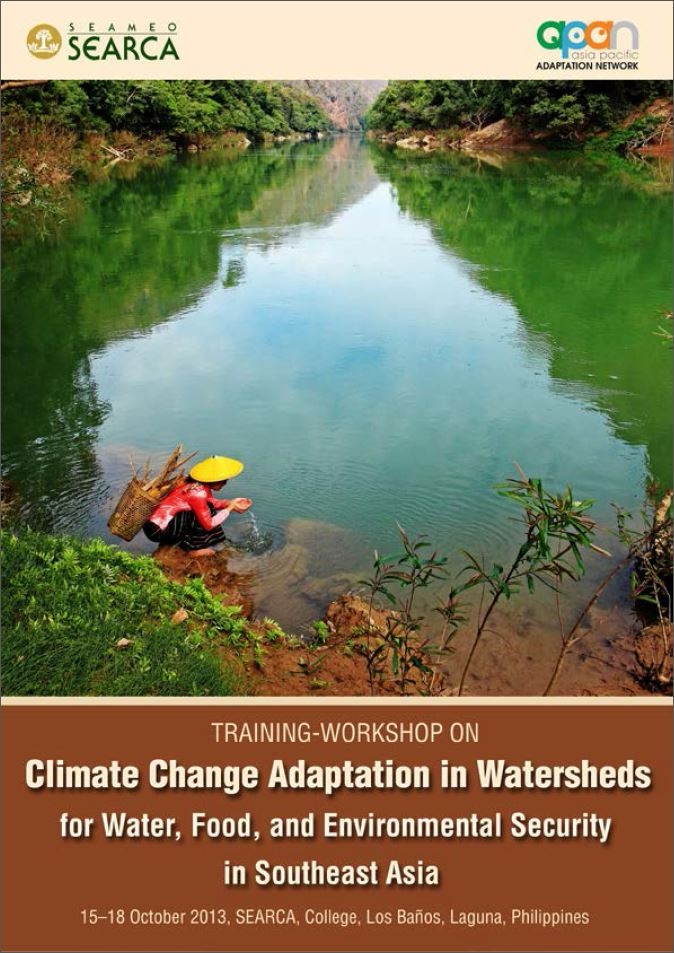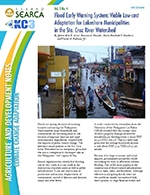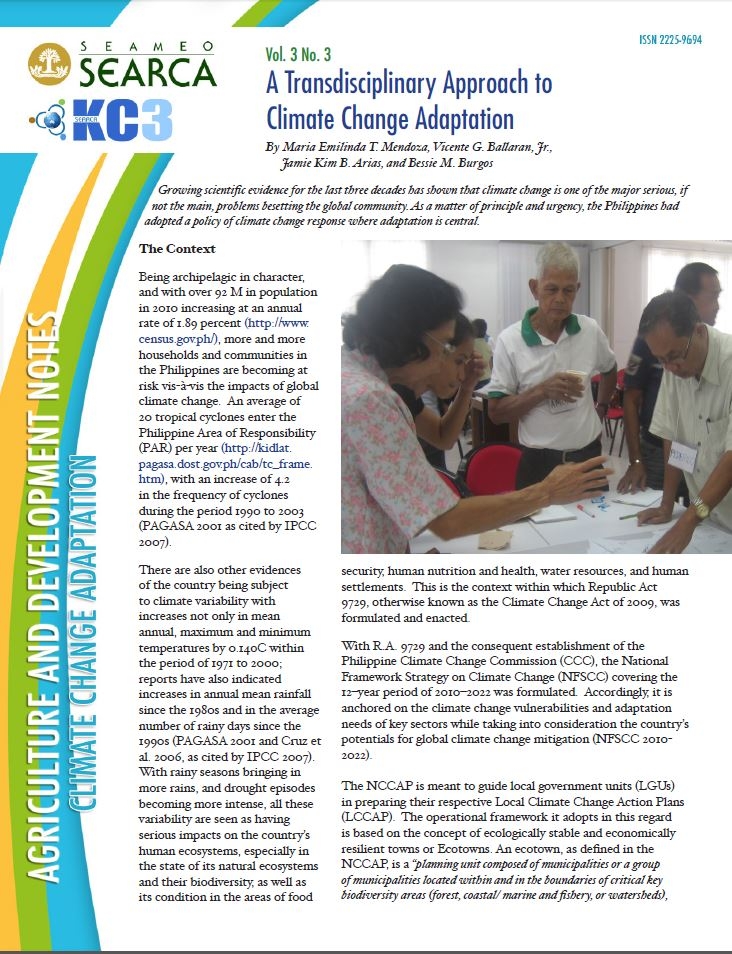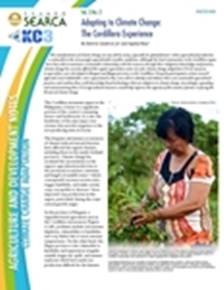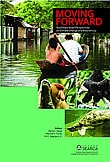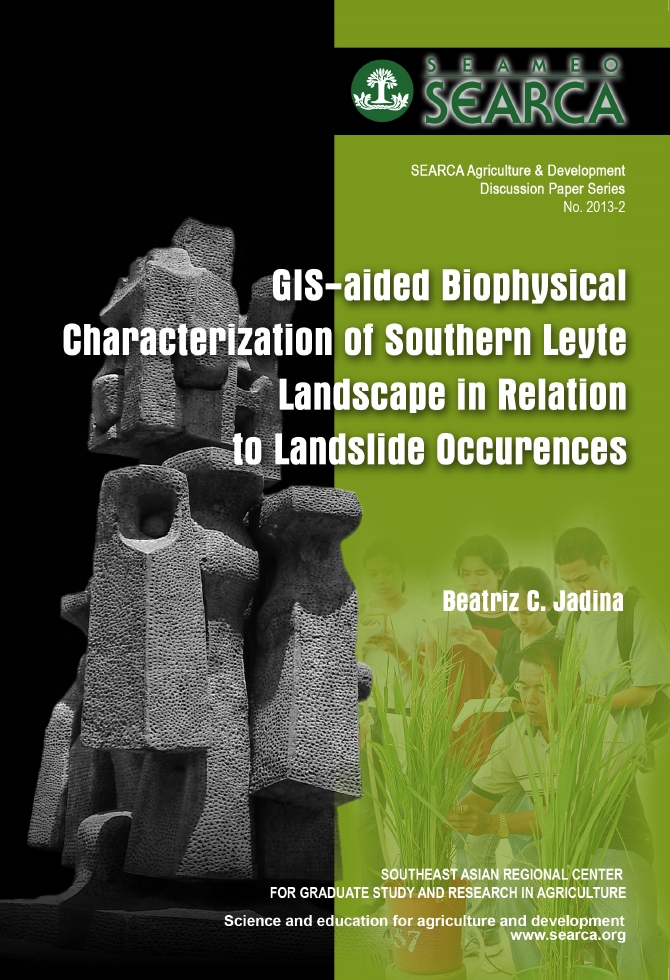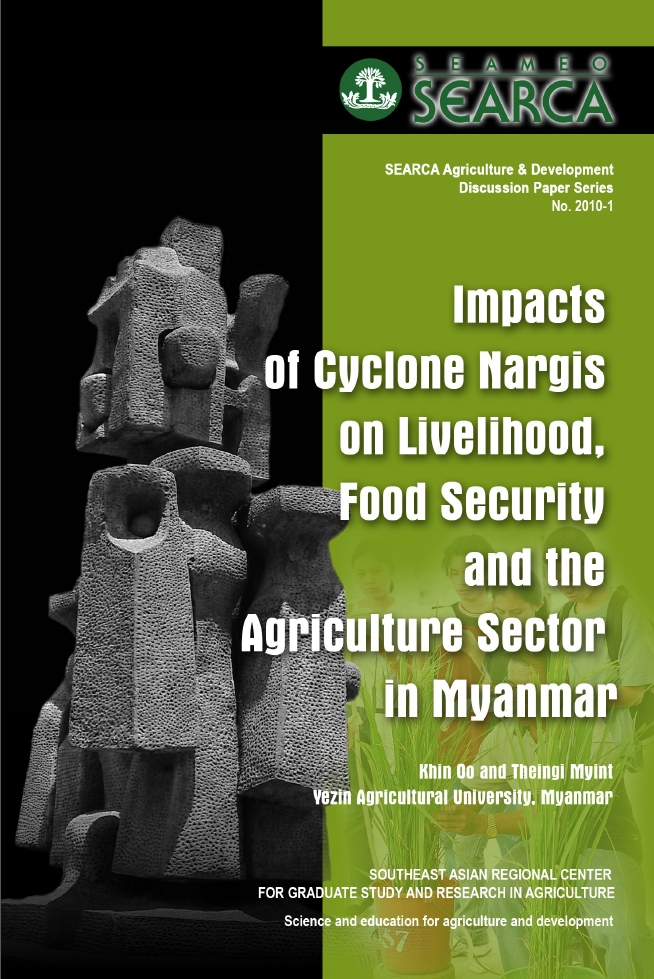Publications
This contains experience notes, adaptation notes, policy briefs, policy papers, technical reports, stories on good practices, and other publications related to climate change adaptation and mitigation in Southeast Asia not just from SEARCA, but also from KC3's partners and other agencies/institutions.
The warming of the climate system is unequivocal. It is with this characteristic that recent climate-related disasters, including natural hazards, global temperature rise, and extreme weather events, among many, cemented the need for implementing climate change adaptation (CCA) in the Southeast Asian region. The capacity of Southeast Asians to adapt determines the resilience of the region to cope with the current and future changes in climate. Moreover, adaptation reduces the detrimental effects of climate change, while capitalizing on opportunities and…
The undeniable importance of the agriculture sector in Southeast Asia provides a strong impetus for the urgent need to strengthen its potential as key for reducing poverty and in achieving food security. However, such importance of agriculture is being challenged by the increased prevalence of extreme weather events and unpredictability of weather patterns. As a result, agricultural production is seen to diminish resulting to significant lowering of incomes, particularly in vulnerable areas, with wide-ranging effects to the regional economy.
Organized by the Southeast Asian Regional Center for Graduate Study and Research in Agriculture (SEARCA) and the Asia Pacific Network (APAN), the training-workshop on Climate Change Adaptation in Watersheds for Water, Food, and Environmental Security in Southeast Asia held on 15–18 October 2013 at SEARCA, College, Los Baños, Laguna, Philippines called on twenty-three researchers, technical officers/ experts, and academics from five Southeast Asian countries to understand the intricate interrelationships among climate change and various extractive practices and measures affecting watersheds in order…
Floods are among the most devastating hazards confronting the Philippines. Unfortunately, many households and communities are becoming more at risk because of improper land use and rapid environmental degradation, coupled with the impacts of global climate change. The lakeshore municipalities in the Sta. Cruz River Watershed are no exception, given that the area is contiguous to the largest lake in the Philippines—the Laguna de Bay. Recent experience has shown that flooding can be very costly as it can result in…
Growing scientific evidence for the last three decades has shown that climate change is one of the major serious, if not the main, problems besetting the global community. As a matter of principle and urgency, the Philippines had adopted a policy of climate change response where adaptation is central.
The manifestations of climate change are now felt by many, especially by upland farmers whose agricultural production is vulnerable to the increasingly unpredictable weather conditions. Although the local communities in the Cordillera region have been able to maintain a sustainable relationship with the resources through their indigenous knowledge and practices, climate change has severely affected the region’s agriculture sector. As such, climate change adaptation (CCA) measures in agriculture were developed in Benguet and Ifugao provinces in the Cordillera. Using the…
International Conference on CLIMATE CHANGE IMPACTS AND ADAPTATION FOR FOOD AND ENVIRONMENTAL SECURITY | Conference Summary Report | January 2013 About 150 researchers, academicians, policymakers, and development workers representing 21 countries attended the International Conference on Climate Change Impacts and Adaptation for Food and Environmental Security (ICCCIAFES) held on 21–22 November 2012 at the Southeast Asian Regional Center for Graduate Study and Research in Agriculture (SEARCA) in Los Baños, Laguna, Philippines.
Climate change is a global phenomenon that is being experienced by all levels of society, regardless of race and species, and in all types of ecosystems, regardless of geographic location. It will have diverse effects on biodiversity, which will directly impact on food security, water supply and livelihood among others, especially for the poor and more vulnerable sectors of human society. More importantly, all forms of life including human society are trying their best to adapt and survive. This book…
This study was conducted in Southern Leyte to characterize its biophysical attributes, identify factors influencing landslide occurrences, develop a landslide database, and present recommendations for suitable land use. The major attributes of the province that were mapped using geospatial technologies (geographic information system, global positioning system, and remote sensing) were rock formations and fault lines, seismic occurrences, slope characteristics, elevation, soil series, vegetation/land use, and rainfall characteristics. Some soil properties of the landslide areas were also determined. The highest frequency…
Nowadays, international and regional institutions dedicated to research, training, and extension activities in disaster-prone countries are emerging. Many contemporary approaches to risk management and reduction, now being discussed and advocated at the international level, have grown out of disaster reduction research and application by developing country researchers and institutions. Natural catastrophes and disasters destroy fixed assets and physical capitals, interrupt production and trade, and divert and deplete savings as well as public and private investments. More than the damage to a…

